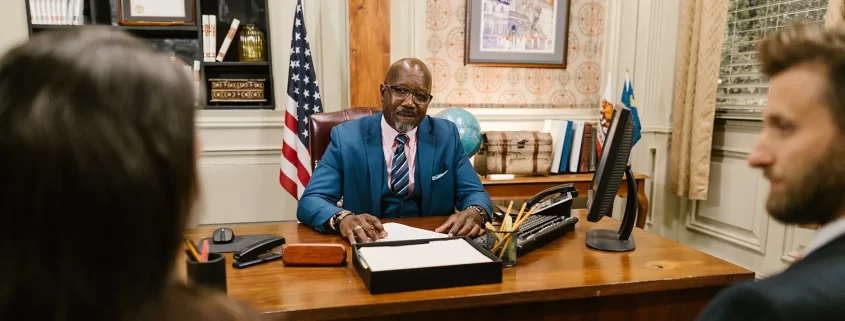When is the Reading of the Will?
The scene opens in an oak-paneled conference room, as shafts of light descend through the large windows in the lawyer’s office onto the pages of an ancient, creased will. The grumpy lawyer slowly begins with some preamble when he is interrupted by the irritated daughter-in-law, dressed casually in black. “So, what do we get?” she exclaims, trying somehow not to look impatient.
The reading of the will! It’s that most classic of movie scenes, and we’re asked all the time. When is it? When will the reading of the will take place?
The answer, unfortunately for those who love a good bit of stage drama, is never. The “reading of the will” is not a requirement, and in Pennsylvania probate court, the will is made available to anyone who wants to review it. As a beneficiary, you have a right to see the will once it is probated, but there is never a specific “reading” for everyone to attend.
Pennsylvania probate begins with the filing of a “Petition for Grant of Letters,” and the process takes about a year to complete in most cases. The executor is responsible for ensuring:
- that the decedent’s wishes are carried out
- that creditors are paid according to law
- that the beneficiaries get as much value from the estate as they can
Of course, there’s nothing stopping you from staging a reading of the will, and as executor, if you want a moment of high drama in the big mansion where someone passed away, you’re welcome to have a reading and accuse someone of murder (*our legal advice is generally not to accuse people of things*). But the “reading of the will” is not required under the law.
If you have questions about making a will, about how to get information about a will that has been probated, or how to do estate administration for someone you love, contact Cornerstone Law Firm. We’ll be happy to walk you through the process.



